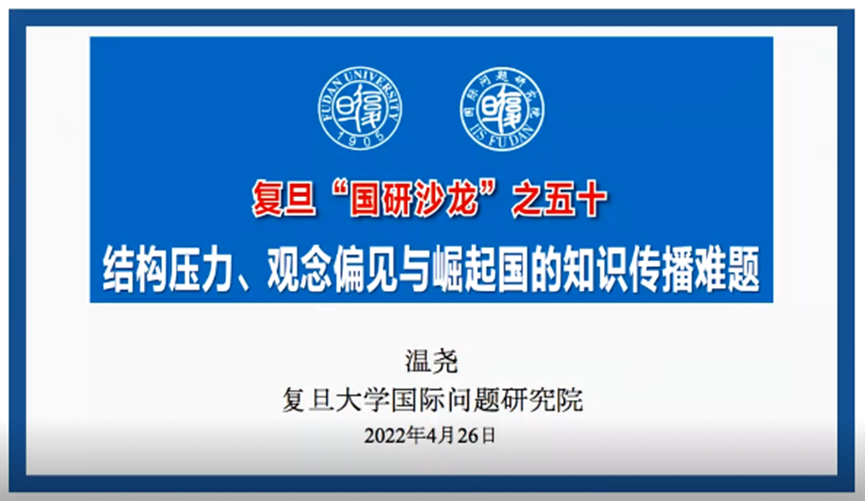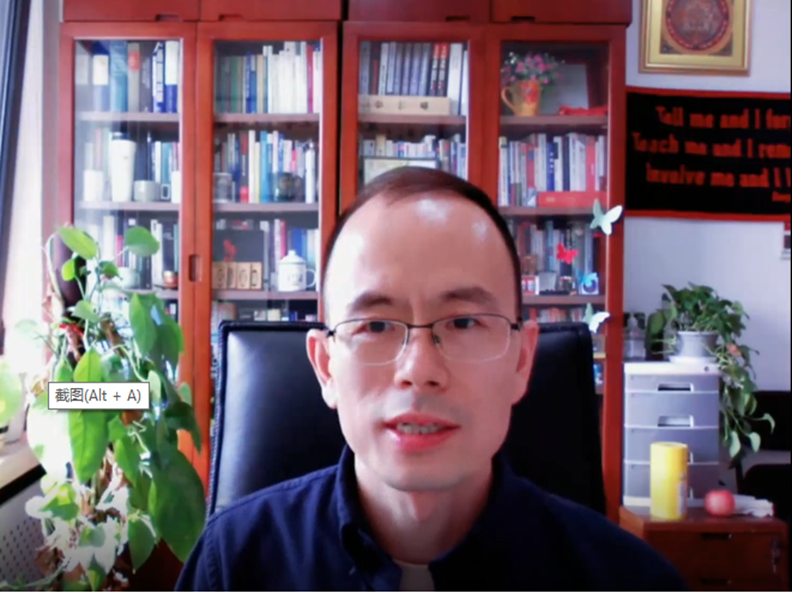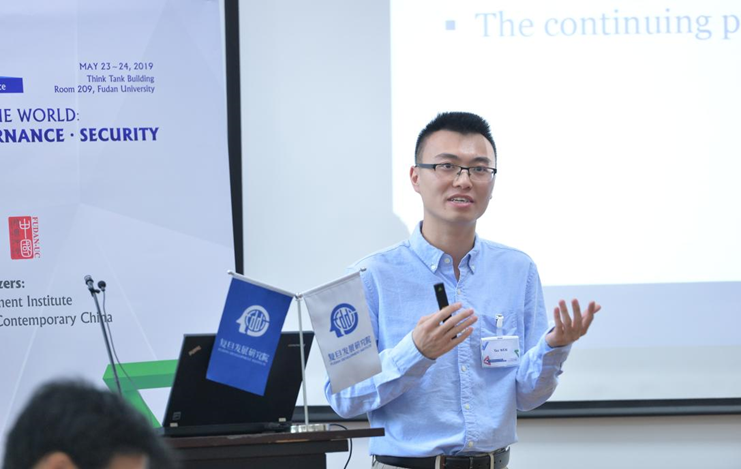On 26 April 2022, the 50th Youth Academic Workshop on International Studies of Fudan University (YAWIS Fudan) was held by the Institute of International Studies of Fudan University (IIS Fudan) via virtual meeting. Assistant Professor WEN Yao presented his research titled “Structural Pressure, Ideational Bias, and Knowledge Promotion Conundrum for Rising Powers.” The 50th YAWIS Fudan was moderated by Professor QI Huaigao, Vice Dean of IIS Fudan, and Associate Professor JIE Dalei from Peking University’s School of International Studies served as the discussant. Over 100 audience members from more than 40 universities virtually attended the workshop. (Asst. Prof. WEN Yao presenting research titled “Structural Pressure, Ideational Bias, and Knowledge Promotion Conundrum for Rising Powers”) WEN Yao theorized the “telling its story well” tactic employed by rising powers to solve the problem of “being scolded” as the promotion of governance knowledge. Governance knowledge is a body of ideational goods that crystalize a state’s developmental experience and governance achievements, including not only fundamental values, but also specific institutions, policies, and practices. The conundrum for the contemporary rising power in terms of knowledge promotion can be depicted as such: even though the rising power tries to avoid outright ideological rivalry, its knowledge promotion practices may not only have a hard time solving the problem of “being scolded”, but also inadvertently aggravate the situation. The conundrum derives from the twin structural factors – ideological bifurcation and power transfer process – characteristic of the current international system. Against the structural circumstances, the rising power is strongly motivated to promote its governance knowledge, while the established power tends to enhance its ideological precautions. Those two dynamics reinforce each other, creating a positive feedback loop. Thus, even though China is not intent on replicating its model abroad, its knowledge promotion behaviors still tend to trigger ideological censure from the United States based on “identity comparison” and “model competition”. Comparing cases across different temporal-spatial backgrounds, WEN further discussed the impacts of governance knowledge differences, power structural pressures, and governance knowledge promotion on the intensity of ideological censure. This research suggests that the problem of “being scolded” is qualitatively different from the problems of “being bullied” and “being starved”, as the former’s solution does not linearly correlate with a state’s rising capabilities. The rising power’s prudence and wisdom are put to the test in dealing with the problem of “being scolded”. (Assoc. Prof. JIE Dalei serving as the discussant) In the discussion session, JIE Dalei notes the ongoing academic debate over the role of ideology in Sino-US relations, especially when the two’s strategic competition is heightened. Some realists might dismiss the importance of ideology, while some others value its role and even suggest their government to proactively play the card. JIE conjectures that the role of ideology might sit somewhere in between. Although the ideological frictions between China and the US will probably not resemble the ideological rivalry between the Soviet Union and the US during the Cold War, they would still play a role down the road. Comparing the Trump administration and the Biden administration, America’s China policy has seen some changes, but ideological differences have always figured in America’s competition tactics. JIE notes that the specific mechanisms through which ideology matters have yet to be clarified. Further research is needed on issues such as the relationship between governance knowledge and ideology, the measurement of “being scolded”, the evolution of China’s governance knowledge, and the relative importance of ideology across temporal-spatial backgrounds. In the Q & A session, participants discussed issues such as the relationship between power politics and international communications, the relationship between knowledge and discourse, and India’s rise and knowledge promotion. (WEN Yao presenting at the 2nd Global Young Scholars Conference, Fudan Development Institute, May 2019) About the presenter: WEN Yao obtained his PhD in political science from the University of Toronto. He joined IIS Fudan as Assistant Professor in July 2020, and has been affiliated with Center for China’s Relations with Neighboring Countries of ISS Fudan. He currently serves as the liaison of the secretariat of the Network of ASEAN-China Academic Institutes (NACAI). His research interests include great power politics, international relations in Southeast Asia, and ideational and policy diffusion. His research has been published or will appear in The China Review, World Economics and Politics, Journal of Contemporary Asia-Pacific Studies, Foreign Affairs Review, and Fudan Journal. Link to the Chinese version: https://iis.fudan.edu.cn/be/e2/c6840a442082/page.htm


Asst. Prof. WEN Yao Presents Research on Rising Powers’ Knowledge Promotion at the 50th YAWIS Fudan
发布时间:
2022-04-27
访问次数:
117
